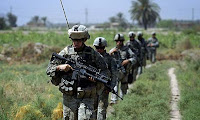 Ambassador Ginsberg spent his formative years in the Middle East, particularly in Israel, Egypt, Jordan and Lebanon from 1960-1968. He began his foreign policy career as a foreign affairs advisor during his freshman year in college to Senator Edward M. Kennedy (1971-1977). He was appointed by Secretary of State Vance as his White House Liaison in 1977, and then served as Deputy Senior Advisor to President Carter for Middle East Policy on his White House staff from 1979-1981. In 1994, he was appointed by President Clinton as U.S. Ambassador to Morocco, making him the first American of Jewish heritage to be appointed to an Arab nation.
Ambassador Ginsberg spent his formative years in the Middle East, particularly in Israel, Egypt, Jordan and Lebanon from 1960-1968. He began his foreign policy career as a foreign affairs advisor during his freshman year in college to Senator Edward M. Kennedy (1971-1977). He was appointed by Secretary of State Vance as his White House Liaison in 1977, and then served as Deputy Senior Advisor to President Carter for Middle East Policy on his White House staff from 1979-1981. In 1994, he was appointed by President Clinton as U.S. Ambassador to Morocco, making him the first American of Jewish heritage to be appointed to an Arab nation.Let's get to the Ambassador's agenda first. The mission he has posted have to do with establishing some of these talking points:
Ambassador Ginsberg offers ten focusing questions to fill the truth cavities in our current American mythology about Iraquagmire. Here are some of them:
- Debunk the fiction that Bush's military surge has achieved sustainable military or political objectives.
- Undermine Sen. McCain's argument that staying the course is a patriotic duty.
- Demonstrate to the American people that the recent Iraqi government defeat at the hands of the Mahdi Army was indeed the "defining moment" that Bush claimed it was.
But the major talking point remains. We are not at war in Iraq. If we were, Iraq would be front-page, or front-of-the-hour news 24-7.
- Prime Minister Maliki launched an offensive to defeat the Mahdi Army in Basra. He was forced, despite U.S. logistical and air support, to sue for a ceasefire. President Bush declared during the fighting that this was a "defining moment" for Iraq. Why shouldn't the American people view this "defining moment" as exactly what it was: a defeat for us, the Iraqi government and a victory for radical Shiite militias?
- If the U.S. military cannot adequately defend the Green Zone from missile attack from Shiite militias, why should the American people believe that the surge has achieved tangible, and not momentary lulls in violence?
- General Petraeus, you are proposing that the current level of military forces remain static longer than planned. Isn't this proof that the amount of troops in Iraq will never be enough to adequately reduce the level of violence against U.S. and Iraqi forces?
- Define "victory" within the context of the current Iraqi political and military environment? Why should this not be a recipe for disaster given the inability of the Iraqi military to meet its training goals and objectives?
- Incubating Iraqi political reconciliation was supposed to be one of the byproducts of the surge. Yet, the Iraqi government is as dysfunctional and disunited as ever -- and our forces are now caught not just between Sunni and Shiite, but between one radical Shiite faction and another. If we are not fighting principally Al Qaeda, but one Shiite faction against another, isn't this just "mission creep" with no end in sight?
- How much will this war cost the American taxpayer in 2008? ...
- The Iraqi government continues to embrace anti U.S. policies and U.S. adversaries. Isn't it an insult to those killed and injured in Iraq that Prime Minister Maliki rolls out a red carpet to Iranian President Ahmadenijad whose Revolutionary Guards, by your own account, is sending arms and funds into Iraq to kill and injure U.S. troops?
- Admiral Fallon, the former head of Central Command (CENTCOM) recently ... was forced to resign. Please explain what was Admiral Fallon's assessment of your recommendations with respect to troop levels and the overall goals and objectives that the strategy was designed to achieve in Iraq?
- If Al Qaeda's threat has been substantially reduced, why shouldn't we more expeditiously draw down our forces in Iraq to facilitate a transfer of American forces to Afghanistan where the real struggle against Al Qaeda must be waged?
 My fellow Americans would be sucking our multi-media's spigots for each little morsel of news we could get. But the truth is, instead of warfare for glorious victory, our insanely brave, professional and competent troops have been assigned to a grinding, toiling, pointless, hopeless and endless task of policing a hostile nation. Forcibly occupying a hostile nation is the most inglorious of all missions to which troops can be assigned.
My fellow Americans would be sucking our multi-media's spigots for each little morsel of news we could get. But the truth is, instead of warfare for glorious victory, our insanely brave, professional and competent troops have been assigned to a grinding, toiling, pointless, hopeless and endless task of policing a hostile nation. Forcibly occupying a hostile nation is the most inglorious of all missions to which troops can be assigned.Unlike wars, occupations are never won or lost. Occupations are concluded when their cost effectiveness becomes negative. We have been beyond that point for some time, now. We just don't have leadership who can grasp that unescapable truth.
Our defining moment in Iraq has passed.


















Jack Murtha:
ReplyDeleteWe must not be fooled by those who say there will be chaos if we leave Iraq. The leaders of the Iraqi factions can choose whether or not there will be chaos in Iraq. Prime Minister Maliki, Moqtada al Sadr, President Talabani, and Vice-President Hashimi -- they control the forces. In fact, it is widely understood that Moqtada al Sadr's call to his Mahdi militia for a cease fire has been critical to the reduction of violence.
The more U.S. troops we send to Iraq, the more dependent the Iraqis become on U.S. Forces. The longer our troops are there, the less likely it is that the Iraqi security forces and police will take the lead in securing and stabilizing their own country.
Simply put: Why, after five years, $535 billion, over 4,000 American lives lost and nearly 30,000 wounded, can't the Iraqi government control their own country?
The answer: Because they won't, as long as we are there. That is what the surge in fact proves.
I liked it when Barbara Boxer says to Gen. Betrayus something like,
ReplyDelete"How can you come here and say, after 5 years, 4,000 KIA, 30,000 WIA, and $trillion$'s that what we got is 'FRAGILE and REVERSIBLE'?"
A perfect summation.
Senator Biden:
ReplyDelete“We have spent less in six years in Afghanistan than we spend in three weeks in Iraq.”
SEN. MCCAIN: There are numerous threats to security in Iraq and the future of Iraq. Do you still view al Qaeda in Iraq as a major threat?
ReplyDeleteGEN. PETRAEUS: It is still a major threat, though it is certainly not as major a threat as it was, say, 15 months ago.
SEN. MCCAIN: Certainly not an obscure sect of the Shi'ites, all overall, or Sunnis or anybody else.
Just call him Senator McSenility
Things are not always as they seem.
ReplyDeleteI get your point, Soros! Profound.
ReplyDeleteLast night, I was kept up past bedtime by Charlie Rose. He had two highly professional correspondents, John Burns and Dexter Filkins, sitting at his table in the dark room. Old Iraqi 'hands'. They were in agreement that the security conditions in Iraq were improved over the last two years. They were also attentive to American public opinion: how much longer could they bear the burden in blood and treasure?
I wanted to be a fly on the wall, and kept volunteering (shouting) my own questions:
How about Iraqi opinion? How much more of their blood and treasure?
Are you aware that we are the invaders? That we are now the occupiers?
Weren't you guys cheerleaders & believers in the invasion in the beginning?
Trophy wife finally hit me upside my head so she could get some sleep.
An ironic memorandum to Bush and McBush from a former Iraqi Army conscript in today's LA Times (sorry, I can't find the link):
ReplyDeleteOne of the reasons why many Iraqi's wanted Saddam's head in 2003 was the series of ruinous and costly wars into which he put their country.
Here it is, Emily,
ReplyDeleteThere is little meaningful I can add.... except to say that I, for one, am tired of all Iraq critics looking backwards, Marc Ginsberg included.
ReplyDeleteA well researched, well documented and well intended condemnation of the last eight years WILL NOT (and, frankly should not) win the next election.
McCain's strength in the polls (which is increasing daily) isn't because he is right, nor is it because most Amreican's agree with him. It's because the war opponents, Barrack Obama included, present no intelligent and compelling alternative. Leaving isn't a plan.
The American voting public doesn't seem ready to sign on to an open ended, rapid or unilateral withdrawal with no strategy for stabilazation of the region.
I think Obama now realizes this and realizes the error of his earlier position on Iraq. That is exactly why he was so thoughtful and so very respectful in his questions and statements yesterday.
To the great Wizard, who says:
ReplyDeleteI, for one, am tired of all Iraq critics looking backwards.
The Great Faulkner says,
The past is never dead, it is not even past.